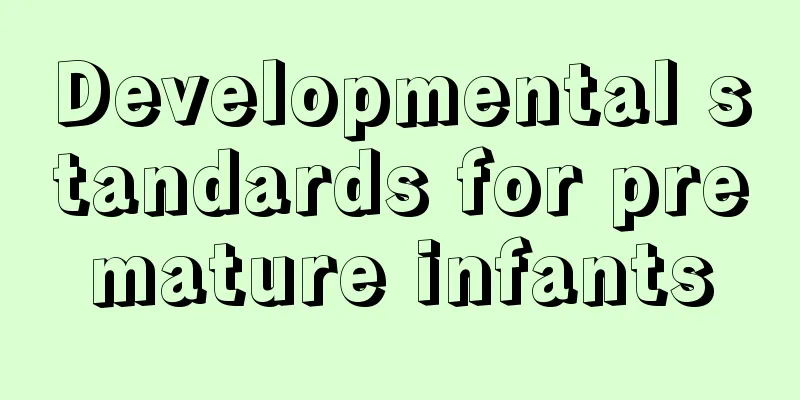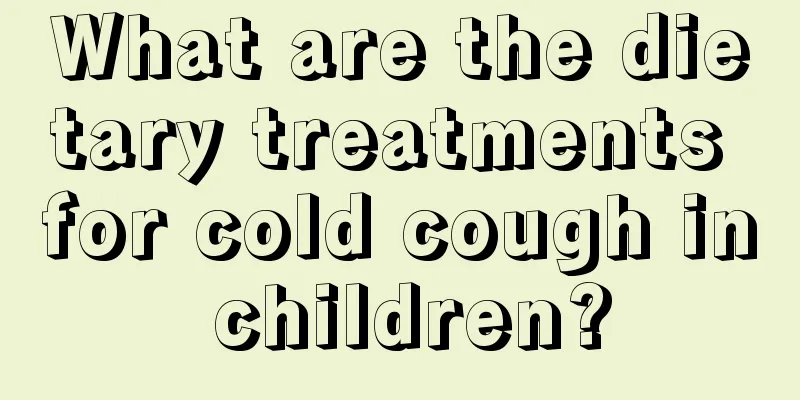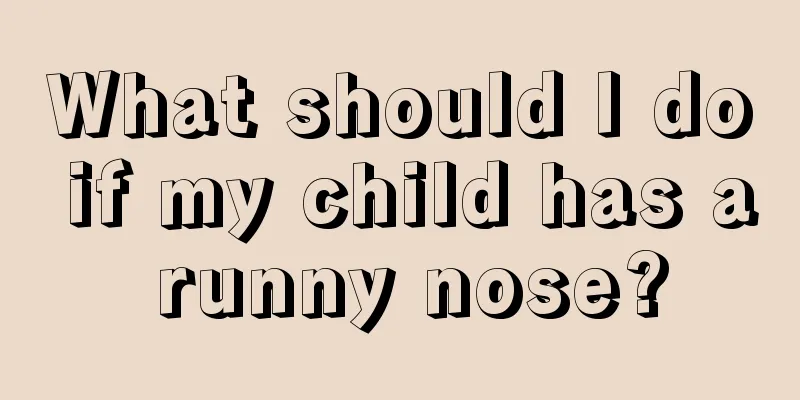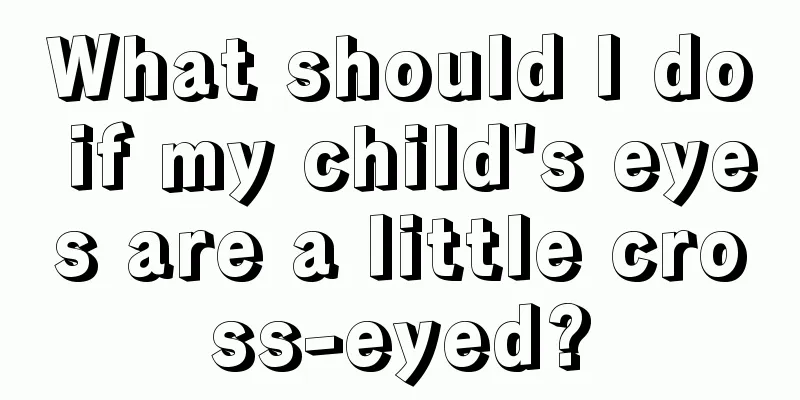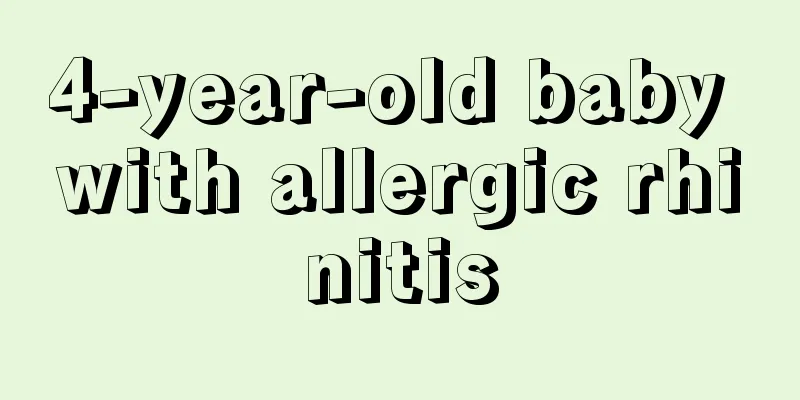The newborn was hit on the head

|
Babies are bound to get bumps and bruises when they are small, especially during their growth process, scratches and bruises are inevitable. Although many parents are extra careful when taking care of their babies, they may still encounter head injuries. The head of a newborn is relatively fragile and is the part that needs the most protection. Once it is hit, it is necessary to carefully check whether there are other discomforts to avoid causing bad consequences to the baby. Take your baby to the hospital right away if he or she shows any of the following symptoms within a day or two after hitting his or her head: 1. You have persistent headaches, dizziness or vomiting. 2. You seem unusually sleepy during the day or difficult to wake up at night. 3. Wake your child up several times during the first night after a fall to make sure you can wake him up. Problems with coordination, mental ability, or strength, such as arm or leg weakness, slurred speech, confusion, or impaired vision. Treatment tips after a collision 1. A big bump on the head or bruise on the skin surface Symptoms: Headache, obvious bruises on the skin surface, edema on the head, or a large swelling on a certain part of the head. Treatment method: If the baby's head is hit and a big swelling appears, you can apply an ice pack to the bruised area for about 20 minutes. This can reduce swelling and relieve the baby's pain. Then maintain an observation period of 24 to 48 hours. If the baby cries immediately after being injured, it means he is conscious. If there are no other abnormal reactions after a day or two, it means it is just a minor injury. Don't worry, the lump on the head will slowly disappear. If your baby vomits once or twice within a few hours after the injury but is conscious, don't worry too much. Usually the baby will return to normal within 8 hours. If your baby is confused, sleepy, and difficult to wake up, has a severe headache or severe vomiting, go to the hospital for examination immediately. In addition, for babies under one year old, even if they do not show any abnormal symptoms, they should go to the hospital for examination immediately after being injured. 2. Scalp abrasion
Symptoms: The skin is abraded and bleeding. Treatment method: Immediately use sterile gauze (or clean clothes if the situation is urgent) to gently press the wound until the bleeding stops. Apply some hemostatic and anti-inflammatory topical ointment on the wound, and then bandage the wound with a Band-Aid or bandage. The baby's facial skin has many surface blood vessels, so it is easy to bleed when the scalp is scratched. Don't be nervous, just stop the bleeding in time. However, if the baby is under one year old, or the bleeding does not stop, and there is dirt on the wound, you should take him to the hospital for examination after the bleeding stops. 3. Concussion Symptoms: dizziness, nausea, vomiting, headache, constant sleepiness, confusion, and even coma. The ability to speak or walk may also be affected. Treatment method: Try not to move the injured baby, especially do not shake the baby's head. Call your baby's name loudly. If he is conscious but not fully awake or has a severe headache, you should take him to the hospital for examination immediately. If your baby cannot hear you and is completely unconscious, call emergency services immediately. At the same time, you should monitor your baby's breathing and pulse. If your baby's breathing becomes weak before emergency personnel arrive, you can try to give him artificial respiration. 4. Skull injury Symptoms: In addition to the symptoms of concussion, there is obvious edema at the injured area of the head, and the baby's nose, ears or mouth may also have bleeding. What to do: Call the emergency center immediately. If your baby's neck or back is also injured, try to hold your baby's head still and hold it still until help arrives. When a wound is bleeding, gently apply sterile gauze or clean clothing to the wound to stop the bleeding. But don't put pressure on your baby's head with your hands or try to move any objects that are against your baby's head. Dangers associated with headaches
If a child has a headache, usually there is no need to worry too much, as it will get better with proper rest. However, if your child has the following symptoms along with his headache, it is best to take him to the hospital for examination immediately: When sleeping at night, I am often awakened suddenly by a headache. Severe vomiting occurs. The headaches became more frequent and more severe. The child's personality changes, such as becoming easily irritated or unusually quiet. Accompanied by fever or neck muscle spasms. A headache that occurs after a head injury. |
<<: Symptoms of constipation in newborns
>>: Why are the newborn's testicles black?
Recommend
What causes children’s gums to become red, swollen and bleeding?
Children’s teeth are always fragile. Sometimes, f...
What should I do if my child has rubella? Parents please remember these methods!
Once a child is infected with rubella, parents mu...
What are the precautions for early pregnancy?
After a woman checks that she is pregnant, she mu...
What is the appropriate humidity in a baby's room?
Just after the baby is born, he will be cared for...
What does measles look like in children?
There are many types of skin diseases, and most o...
Does minor thalassemia have any effect on the baby?
Thalassemia is a symptom of anemia and is also a ...
Will a child’s molars grow back after they fall out?
As we all know, children are very lively and acti...
How to identify Down syndrome babies
Down disease, also known as Down syndrome, means ...
What to do if your child has a cold, fever, and diarrhea
It is quite common for children to have colds, fe...
Can children have plastic surgery?
The rapid development of cosmetic surgery technol...
What are the symptoms of mentally retarded children?
Nowadays, many families have a child. They love t...
What are the antiviral drugs for children?
When choosing some special medicines, you need to...
Children with diarrhea should be cautious when using 5 types of drugs
Diarrhea is prevalent in summer, especially among...
How to treat bad breath in children
Bad breath is not only a problem faced by adults,...
Symptoms of autism in two-year-olds
Newborn babies are developing in all aspects of t...
